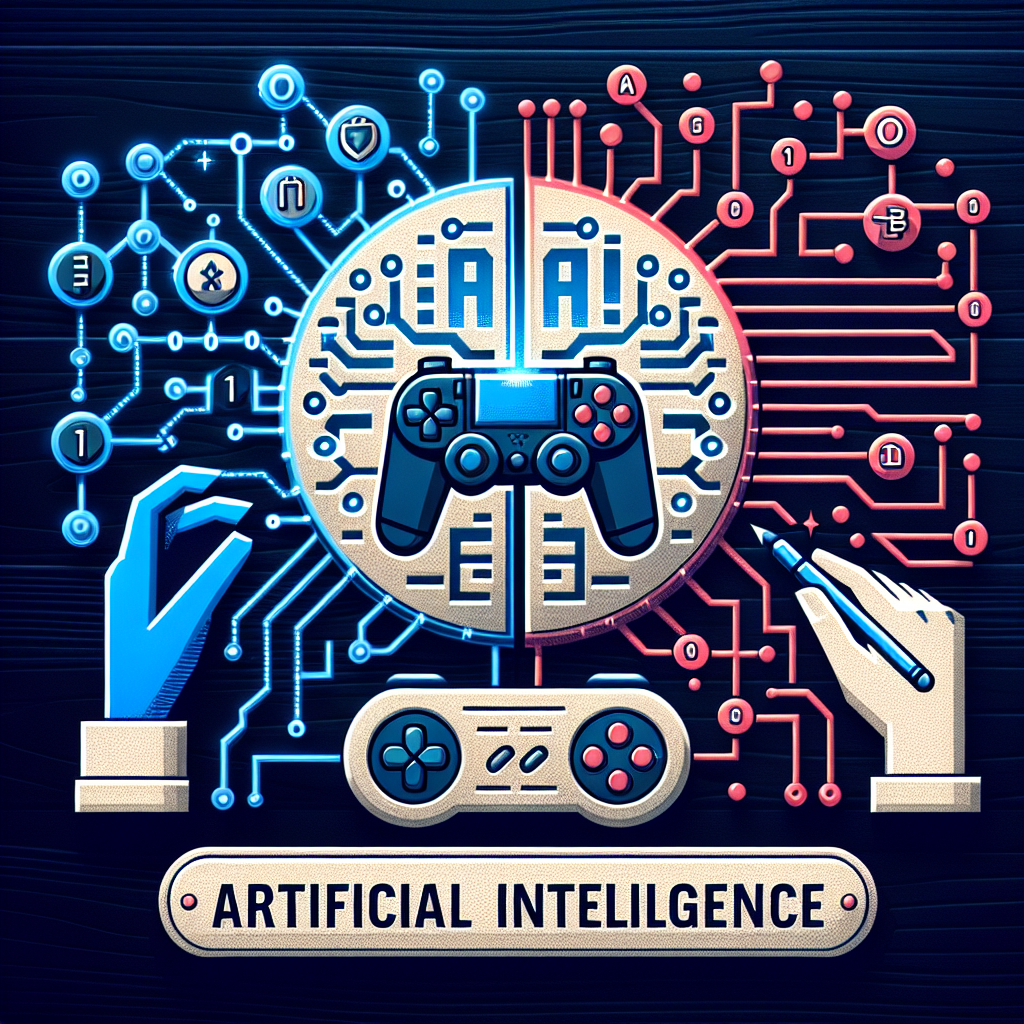Artificial Intelligence (AI) has been a game-changer in the gaming industry, revolutionizing the way games are designed, developed, and played. AI deployment in gaming has opened up a world of possibilities, enhancing player experiences and immersing them in interactive and dynamic virtual worlds. From creating intelligent NPCs (non-playable characters) to personalized gaming experiences, AI has significantly improved gameplay and overall user satisfaction.
AI in Gaming: A Brief Overview
AI in gaming refers to the use of artificial intelligence technologies to enhance various aspects of game development and gameplay. AI algorithms are used to create intelligent NPCs, improve game mechanics, generate dynamic content, and provide personalized gaming experiences. AI in gaming is not a new concept, as developers have been using AI technologies for decades to create more challenging opponents and realistic environments.
However, recent advancements in AI technologies, such as deep learning and machine learning, have taken AI deployment in gaming to a whole new level. These cutting-edge technologies enable game developers to create more realistic and immersive gaming experiences, making games more engaging and enjoyable for players. AI algorithms can learn from player behavior, adapt to their preferences, and provide personalized challenges and rewards, enhancing player experiences and increasing player retention.
Enhancing Player Experiences with AI
AI deployment in gaming has the potential to enhance player experiences in various ways, including:
1. Intelligent NPCs: AI algorithms can be used to create intelligent NPCs that behave more realistically and adapt to player actions. These intelligent NPCs can provide more challenging opponents, offer dynamic dialogues, and create immersive storytelling experiences.
2. Personalized Gaming Experiences: AI algorithms can analyze player behavior and preferences to provide personalized gaming experiences. This can include recommending games, levels, or challenges based on player preferences, adapting game difficulty to player skill levels, and creating customized content for individual players.
3. Dynamic Environments: AI algorithms can generate dynamic environments that change and evolve based on player actions. This can create more immersive and interactive gaming experiences, where players feel like they are part of a living and breathing virtual world.
4. Procedural Content Generation: AI algorithms can be used to generate procedural content, such as levels, maps, and quests, automatically. This can help game developers create vast and diverse gaming worlds with minimal manual effort, providing players with endless possibilities and challenges.
5. Real-time Analytics: AI algorithms can analyze player data in real-time to provide insights into player behavior, preferences, and engagement. This can help game developers optimize game mechanics, improve player retention, and increase monetization opportunities.
FAQs about AI Deployment in Gaming
1. What are the different types of AI algorithms used in gaming?
There are several types of AI algorithms used in gaming, including:
– Pathfinding algorithms: Used to calculate the most efficient path for NPCs to navigate through game environments.
– Behavior tree algorithms: Used to model the behavior of intelligent NPCs and create complex decision-making processes.
– Machine learning algorithms: Used to analyze player behavior and preferences to provide personalized gaming experiences.
– Procedural generation algorithms: Used to generate dynamic content, such as levels, maps, and quests, automatically.
2. How does AI improve player experiences in gaming?
AI improves player experiences in gaming by creating more intelligent NPCs, providing personalized gaming experiences, generating dynamic environments, offering procedural content generation, and analyzing player data in real-time. These AI technologies enhance gameplay, increase player engagement, and create more immersive and interactive gaming experiences.
3. What are the challenges of AI deployment in gaming?
Some of the challenges of AI deployment in gaming include:
– Complexity: Developing and implementing AI algorithms in games can be complex and time-consuming.
– Performance: AI algorithms can be computationally intensive, requiring powerful hardware to run efficiently.
– Data requirements: AI algorithms often require large amounts of data to train and optimize, which can be challenging to collect and process.
– Ethical considerations: AI technologies in gaming raise ethical concerns, such as data privacy, algorithm bias, and player manipulation.
4. How can game developers leverage AI technologies in gaming?
Game developers can leverage AI technologies in gaming by:
– Collaborating with AI experts: Working with AI experts to develop and implement AI algorithms in games.
– Experimenting with AI technologies: Testing different AI algorithms and techniques to find the best fit for their games.
– Analyzing player data: Using AI analytics to gather insights into player behavior, preferences, and engagement.
– Updating games regularly: Incorporating new AI technologies and features into games to keep them fresh and engaging.
5. What is the future of AI deployment in gaming?
The future of AI deployment in gaming looks promising, with advancements in AI technologies continuing to enhance player experiences and revolutionize game development. AI algorithms are becoming more sophisticated and powerful, enabling game developers to create more immersive and interactive gaming experiences. As AI technologies evolve, we can expect to see more intelligent NPCs, personalized gaming experiences, dynamic environments, and procedural content generation in future games.
In conclusion, AI deployment in gaming is transforming the way games are developed and played, enhancing player experiences and immersing them in interactive and dynamic virtual worlds. With the continued advancements in AI technologies, we can expect to see even more innovative and engaging gaming experiences in the future. Game developers should embrace AI technologies and leverage them to create unique and compelling gaming experiences that captivate players and keep them coming back for more.

